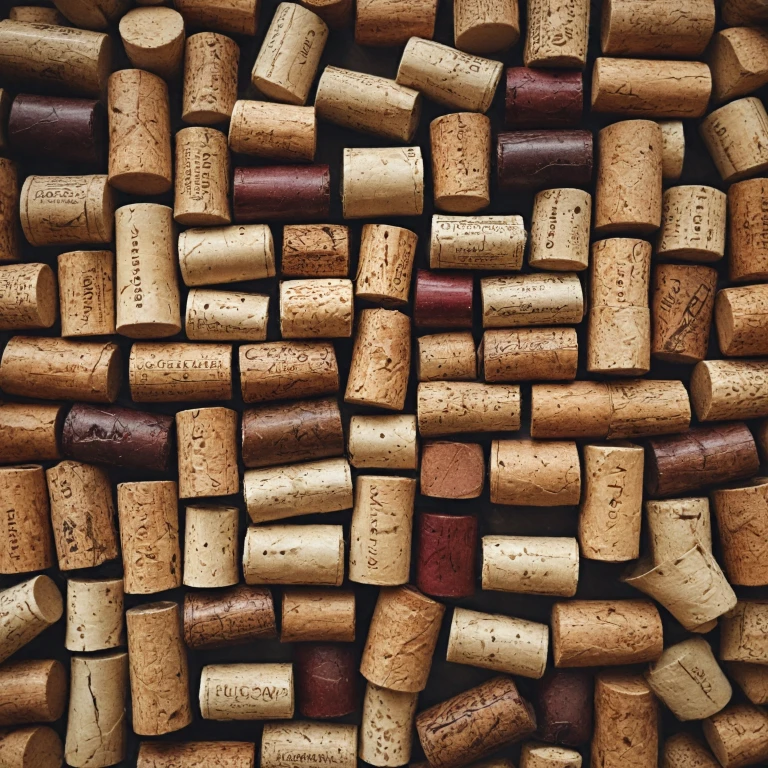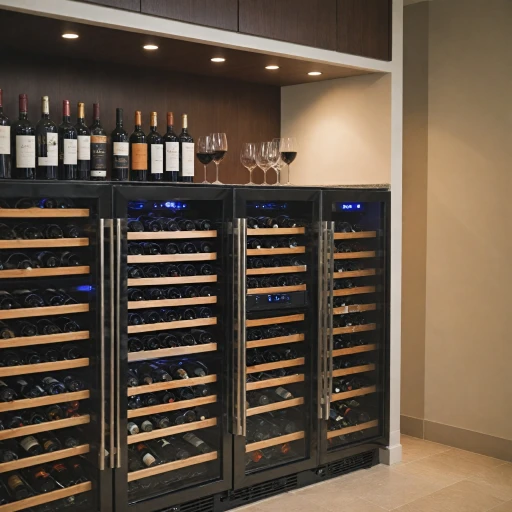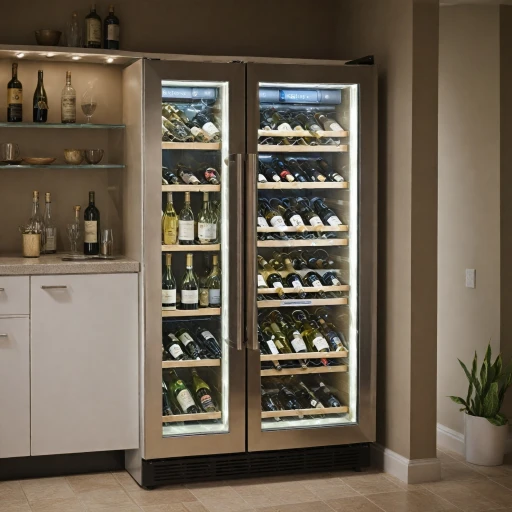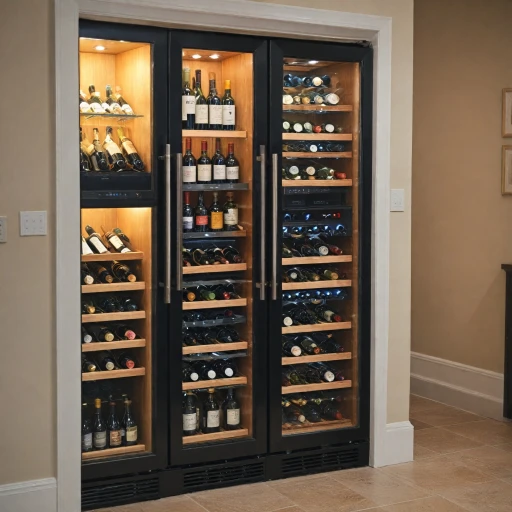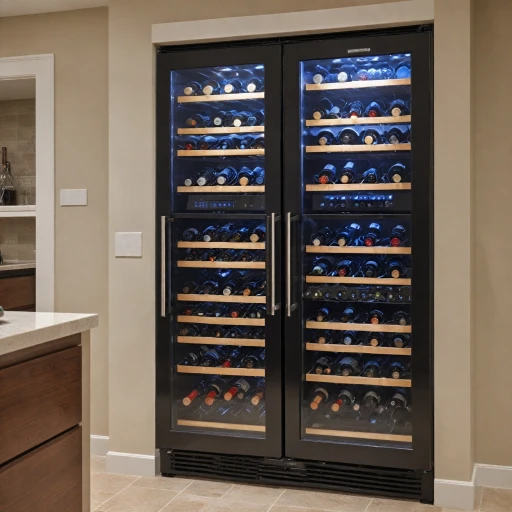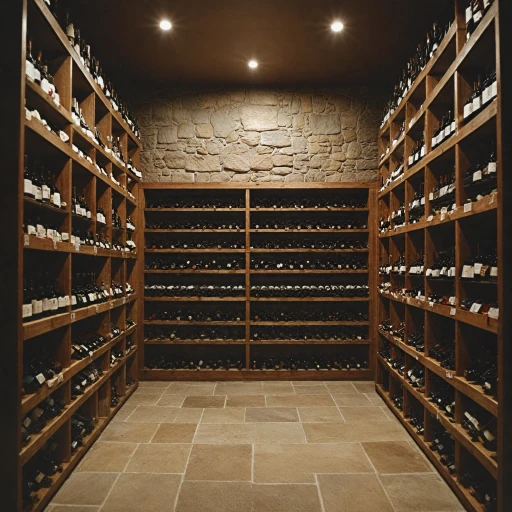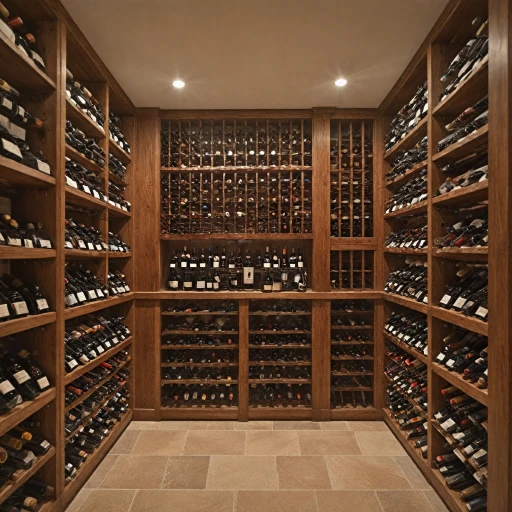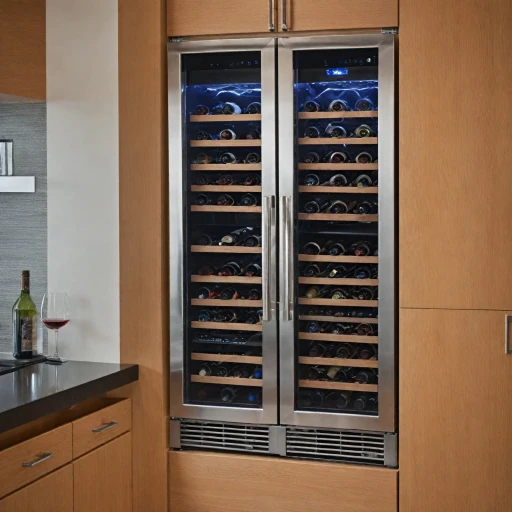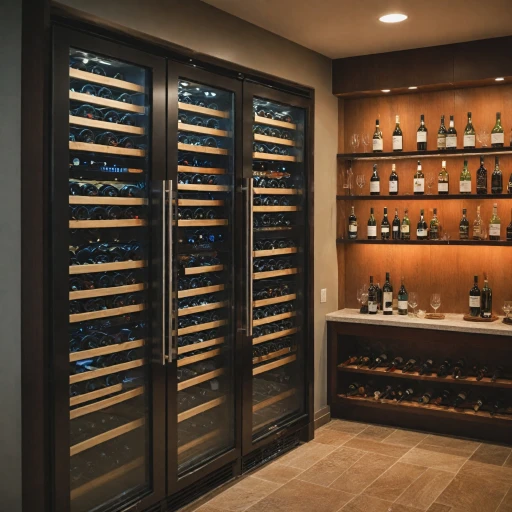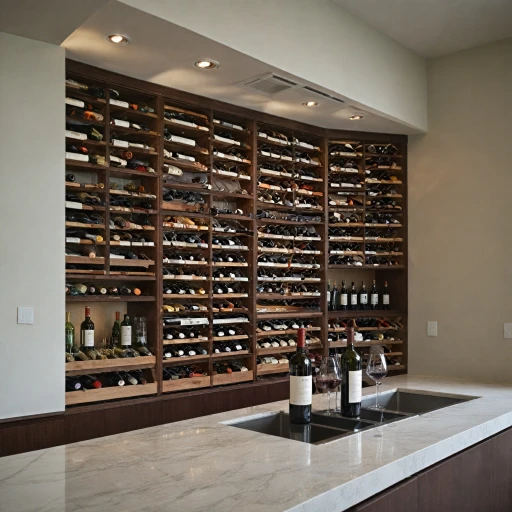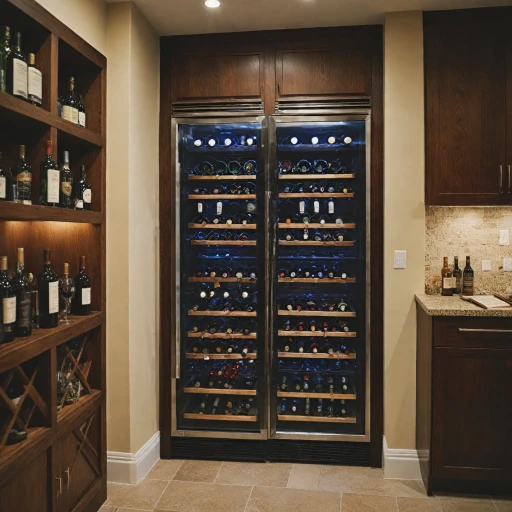
Understanding the Role of Wine Corks
The Essential Function of Wine Corks
Wine corks play a crucial role in preserving the quality and flavor of wines. They act as a natural seal, protecting the wine from external elements while allowing a small amount of oxygen to interact with the wine, which is essential for the aging process. This delicate balance is what makes corks a preferred choice for many wine enthusiasts and producers.
Natural corks, made from the bark of cork oak trees, have been the traditional choice for sealing wine bottles. Their unique cellular structure makes them highly effective at maintaining the integrity of the wine bottle's seal. However, the wine industry has seen a rise in alternative wine closures, such as synthetic corks and screw caps, each offering distinct advantages and challenges.
Understanding the role of wine corks is essential for anyone looking to enhance their wine storage. The choice of cork can significantly impact the wine's aging process and overall flavor profile. For those interested in optimizing their wine storage conditions, considering a humidity-controlled refrigerator can be a valuable investment.
Types of Wine Corks and Their Characteristics
Exploring Different Varieties and Their Traits
Wine corks come in various types, each with unique characteristics that influence the overall experience of a wine enthusiast. Understanding these differences is crucial when selecting the appropriate cork for your wine needs.
Natural Corks: Derived from the bark of cork oak trees, natural corks remain a popular choice for bottling fine wines. Their porous nature allows for a small amount of oxygen exchange, which is essential for aging wine gracefully. Though they are traditional, the price of natural corks can be higher due to their organic nature and the labor required for production.
Synthetic Corks: Crafted from plastic compounds, synthetic corks provide a cost-effective alternative that ensures a tight seal. These cork products offer a reliable solution for avoiding the 'cork taint' often associated with natural alternatives. However, they do not facilitate oxygen exchange, which may affect the aging process.
Technical Corks: A combination of natural cork granules mixed with small amounts of synthetic material, technical corks aim to offer the benefits of both worlds. These corks wine closures balance cost and functionality, all while providing consistency in bottle stoppers.
Screw Caps: Increasingly common, especially in New World wines, screw caps offer a predictable seal. They completely prevent any air ingress, thus maintaining a wine's freshness. While they excel in practicality, some purists argue that they lack the romantic appeal of the 'pop' of a natural cork.
Tapered Corks: Often used in smaller bottles or for resealing after a bottle has been opened, tapered corks wine stoppers are manually pressed into the neck. These can be handy for home crafts and DIY projects involving wine bottles.
Choosing the correct bottle cork is essential, not just for the preservation of the wine, but also for enhancing your wine storage with a humidity-controlled refrigerator. Each type of cork product presents its own set of advantages, influencing your wine-related decisions and personal preferences.
The Impact of Cork Quality on Wine Flavor
The Influence of Cork Quality on Wine Taste
The quality of the cork used in sealing a wine bottle plays a pivotal role in influencing the overall taste and aroma of the wine. Corks act as a seal, essential for preserving the wine's characteristics and enriching the drinking experience. A high-quality natural cork ensures the wine stays true to its original essence, while poor quality corks, or those that are not suitable for the specific type of wine, can lead to flavor deterioration.
Corks allow small amounts of oxygen to interact with the wine, which is essential for certain wines to develop complexity over time. However, excessive oxygen exposure, often due to low-quality corks or poor fitting between the cork and the bottle neck, can result in oxidation, significantly altering the taste and bouquet of the wine.
There are several types of corks including natural wine cork, synthetic corks, and screw caps, each with its unique properties and impact on wines. Natural corks, made from cork oak, are often praised for their breathability, which helps winemakers achieve a desired wine profile. Synthetic corks, made from plastic or other synthetic materials, provide a consistent seal but lack the breathability of natural corks. Screw caps, meanwhile, offer a reliable airtight seal, making them a popular choice for wines meant to be consumed young.
For wine enthusiasts and collectors, understanding the importance of cork quality is fundamental when selecting bottles to add to their collection. When considering storage options for your wines, exploring advanced preservation systems can further enhance the life and richness of your collection. Find more insights on enhancing your wine experience with an advanced preservation system.
Common Problems with Wine Corks
Challenges Faced with Wine Corks
Wine corks, whether natural or synthetic, are integral to preserving a wine bottle's seal and protecting the flavors within. However, they can also pose several challenges that can affect the overall wine experience. One common issue with natural wine corks and cork stoppers is cork taint, which can spoil an entire bottle. This happens when a chemical compound called TCA (2,4,6-trichloroanisole) develops, causing wines to develop unpleasant musty aromas. Even a small presence of TCA can ruin the subtleties of a fine wine. Natural corks and cork wine stoppers are also known for their variability. Being a natural product, they can contract and expand with changes in humidity and temperature, potentially compromising the bottle's seal. Inconsistent sealing might lead to wine oxidation, impacting the wine's taste and longevity. Synthetic corks have been introduced to counter some of these problems. They offer a more consistent seal, reducing risks of air ingress. However, reviews of synthetic cork products indicate that they can sometimes be less effective than natural options in terms of wine aging. While they prevent cork taint and are priced more affordably, they don't always exhibit the same elastic properties that allow natural wine corks to adapt to glass bottle shapes as effectively. Another alternative to traditional corks is screw caps. These bottle caps eliminate cork taint risks entirely and provide a tight seal that protects against oxidation. However, there's debate among connoisseurs about how wines with screw closures age compared to those with corks natural or synthetic. In the world of wine closures, choosing between natural cork, synthetic corks, and screw caps involves weighing these common issues. Wine enthusiasts looking to explore the differences between these options can consider crafting a mixed collection to determine personal preferences.Innovations in Wine Cork Technology
Pioneering Advances in Cork Technology
The evolution of wine corks has seen substantial progress over the years, bringing about significant innovations that address traditional challenges associated with natural corks. This section delves into the transformative innovations in cork technology that have enhanced both functionality and quality, influencing how wines are stored and experienced. One of the foremost innovations in recent times is the development of synthetic corks. These alternatives to natural corks have garnered attention due to their ability to offer consistent sealing quality across batches. Made from materials such as polyethylene, synthetic corks mitigate the risk of cork taint—an issue causing off-flavors in wines due to a chemical called TCA. These alternatives are particularly popular among wine producers looking for cost-effective solutions, as they help maintain a stable price point while offering reliability in sealing. Additionally, advancements in tapered cork design have enhanced their effectiveness. Tapered corks are crafted to fit wine bottles snugly, optimizing the seal and reducing potential oxidation—a factor that can alter wine flavor over time. Such improvements are crucial for preserving the intended flavor profiles of wines, offering enthusiasts and collectors the promise of consistency with each poured glass. In the realm of wine closures, screw caps have also seen widespread acceptance, offering convenience and an airtight seal. This innovation, though different in nature from corks, highlights the industry's shift toward embracing diverse closure solutions depending on intended market and wine type. Screw caps have shown their merit in preserving the freshness and character of some wines, challenging the dominance of traditional cork stoppers. Another noteworthy innovation is in the realm of corks that allow for varied oxygen ingress rates. Technology has enabled the creation of products like micro-agglomerated corks, where particles of natural cork are bonded to provide a more controlled interaction with their environment. This is a crucial development for fine wines, where the degree of oxygen exposure significantly impacts maturation and long-term storage. By understanding these innovations, wine producers, consumers, and enthusiasts can make informed choices about the types of closures best suited for their needs. This knowledge empowers shoppers to select wine closures that align with their storage preferences, whether in crafting a small but exquisite collection or managing large-scale wine storage facilities.Choosing the Right Cork for Your Wine Collection
Selecting the Perfect Closure for Your Collection
When it comes to selecting the right closure for your wine bottles, consider factors like the type of wine, your personal preference for corks, and the potential impact on flavor and quality over time. Wine closures are essential for preserving the integrity of the wine, and the market offers an array of options including traditional natural cork, modern synthetic corks, and screw caps.
Natural corks have long been the go-to choice for wine enthusiasts. Despite small imperfections, they are known for providing a reliable seal that allows minute amounts of air to interact with the wine, contributing to the aging process and flavor development. However, issues such as cork taint can sometimes affect taste.
Synthetic corks and screw caps have been developed to address some of the drawbacks of natural cork. Synthetic corks provide a consistent seal without the risk of cork taint, while screw caps offer the convenience of easy opening and closing. Both are excellent choices for wines that are meant to be consumed young and fresh.
Consider the wine's ageability when selecting a closure. For wines intended for long-term aging, natural corks remain the preferred option. However, for everyday or less expensive wines, screw caps and synthetic corks can be a wise choice due to their affordability and reliability.
Lastly, explore bottle stoppers for opened wines and crafts, which provide a convenient way to preserve leftovers without compromising flavor. Pricing and effectiveness can vary, so reading reviews might help in selecting the best products for your needs.

